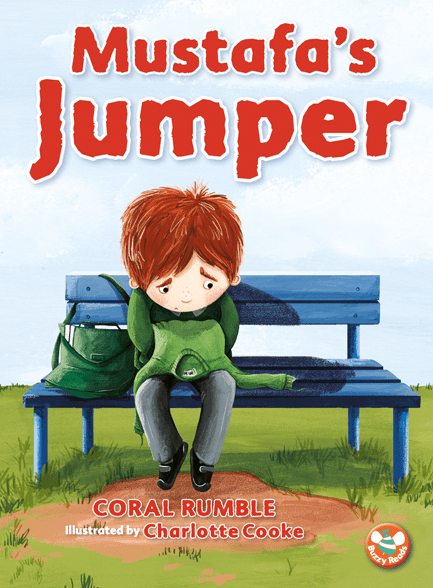Inspiring Young Readers
 posted on 24 Dec 2019
posted on 24 Dec 2019
Mustafa’s Jumper by Coral Rumble
Adapted from the author's prize-winning poem of the same name, mother and daughter team of Coral Rumble and illustrator, Charlotte Cooke manage to accomplish the complicated feat of being both rather melancholic and oddly uplifting at one and the same time.
Milo is a schoolboy who is rather like most schoolboys – unexceptional when it comes to school work:
“Milo likes school but he feels the opposite of important. He’s not extra clever, or extra naughty, or extra anything.”
However, when one day a new boy arrives at school who doesn’t speak much English and needs help and support, Milo really comes into his own. Mustafa, the new arrival, has arrived in the UK as a refugee but he’s smart and willing to learn and, before long, he’s part of the class and rapidly becoming Milo’s best friend.
Their friendship grows deeper as they share the good times and the bad but the story has a sting in the tail. The day comes when Mustafa’s mother tells Milo’s mother that they are going home and that Mustafa will leave the school and leave behind his friendship with Milo.
The night after the news about Mustafa’s departure breaks, Milo asks his mom lots of questions about why he has to leave and go back to his old home. She tells him that even though he’s leaving he will always be part of Milo’s memories and how very proud she is of the way this seemingly very ordinary boy has found his extraordinary talent:
‘”You made that extra effort to be extra friendly and that made Mustafa proud to be your best friend. He chose you because you’re a very extra everything kind of boy.”’
The next day at school all that’s left of Mustafa is his school sweater that Milo hangs on the cloakroom hook which still has his name on it. No-one ever removes the sweater because they know just how important it is to Milo.
This is a charming story of how, by reaching out, it’s possible to bridge divides between people and the language of friendship is more important than the languages we do or don’t speak.
This is a slim book that packs an awful lot in and the lavish illustration helps build the pictures the words trigger – which will certainly help younger readers. The publishers, Wacky Bee, have done a nice job on the production of the book and at the end of the story there are a couple of little extras - a page of information about refugees and migrants and the original poem the book evolved from is there in full too.
Terry Potter
December 2019